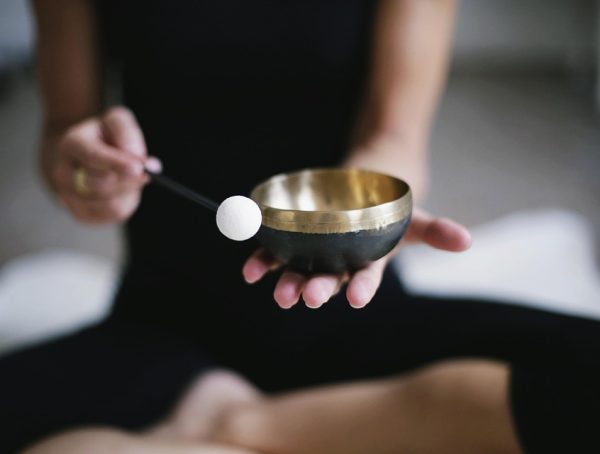Find Your Balance: 20 Essential Benefits of Regular Meditation
In our fast-paced, hyper-connected world, it can be challenging to find a moment of peace and balance. The constant influx of information, coupled with daily responsibilities, can heighten stress and anxiety levels, making it hard to focus on what truly matters. One of the most effective tools available for overcoming these challenges is meditation. This ancient practice, rooted in mindfulness and self-awareness, has gained popularity in recent years for its many benefits, ranging from improved mental clarity to enhanced emotional resilience.
Here, we explore 20 essential benefits of regular meditation and provide actionable steps to integrate this powerful practice into your daily routine.
1. Stress Reduction
One of the most cited benefits of meditation is its ability to reduce stress. By promoting relaxation and a sense of calm, meditation helps to lower cortisol levels, leading to a more balanced emotional state.
Action Step: Dedicate 5 to 10 minutes each morning to meditate in a quiet space. Focus on your breath to decrease stress right from the start of your day.
2. Enhanced Focus and Concentration
Meditation trains the mind to focus better, which can translate into improved performance in work and study.
Action Step: Try a focused attention meditation. Choose an object or your breath to concentrate on for a set time, gradually increasing it as you become more comfortable.
3. Improved Emotional Health
Meditation can lead to enhancements in overall emotional wellbeing. Regular practitioners often experience reduced symptoms of anxiety and depression.
Action Step: Incorporate gratitude meditation, where you spend time appreciating the positive aspects of your life. This practice can uplift your mood and image.
4. Better Self-Awareness
Through meditation, individuals can develop a greater understanding of themselves and their thought patterns. This awareness can pave the way for personal growth.
Action Step: Engage in self-reflection meditation by asking yourself open-ended questions about your feelings and experiences.
5. Increased Creativity
Regular meditation opens the mind to new ideas and perspectives, fostering creativity.
Action Step: Allow time for free-thinking meditation. Sit quietly and let your mind wander for a few minutes without any judgment.
6. Greater Compassion
Meditation, particularly loving-kindness meditation, promotes feelings of compassion toward oneself and others.
Action Step: Practice loving-kindness meditation by silently wishing well for yourself, then extending that wish to others in your life.
7. Better Sleep
By reducing stress and promoting relaxation, meditation can improve sleep quality and duration.
Action Step: Integrate a sleep meditation into your evening routine, focusing on breathing and relaxation techniques as you wind down for the night.
8. Pain Management
Studies suggest that meditation can help manage chronic pain by altering the way the brain perceives pain.
Action Step: Use guided meditations specifically designed for pain relief during moments of discomfort.
9. Improved Relationships
The emotional awareness and compassion fostered through meditation can lead to healthier interpersonal relationships.
Action Step: Share your meditation practice with a partner, friend, or family member to enhance your connection.
10. Lower Blood Pressure
Meditation has been linked to lower blood pressure, making it a beneficial practice for cardiovascular health.
Action Step: Combine meditation with mindful breathing exercises to help lower your heart rate and blood pressure.
11. Boosted Immune System
Regular meditation practice has been shown to enhance immune function, which can lead to better overall health.
Action Step: Dedicate time each week to engaging in mindfulness meditation specifically focused on enhancing your overall well-being.
12. Enhanced Memory
Meditation can improve the cognitive skills necessary for remembering details and processing information.
Action Step: Practice mindfulness meditation regularly to enhance your ability to focus and remember.
13. Increased Patience
Through meditation, individuals learn to cultivate patience and acceptance, which can be beneficial in various aspects of life.
Action Step: Engage in patience-focused meditation, where you work on accepting the present moment without rushing to change it.
14. Reduced Age-Related Memory Loss
Some research suggests that meditation can mitigate age-related memory decline by enhancing cognitive function.
Action Step: Integrate memory-focused exercises into your meditation practice to keep your mind sharp.
15. Emotional Stability
Regular meditation provides tools to respond rather than react to life’s challenges, fostering emotional resilience.
Action Step: In difficult moments, pause for a few breaths and consider your feelings before responding; this can build emotional stability over time.
16. Personal Development
Meditation encourages self-exploration and growth, allowing for personal development.
Action Step: Set personal goals using guided meditation to visualize and map out your desired achievements.
17. Mindfulness in Daily Activities
Meditation cultivates mindfulness, which can carry over into day-to-day activities, enhancing enjoyment and presence in the moment.
Action Step: Bring mindfulness into routine activities, such as eating or walking, by fully engaging your senses.
18. Improved Decision Making
Because meditation enhances clarity and reduces anxiety, it can aid in better decision-making processes.
Action Step: Practice a short session of meditation before making important decisions to clear your mind and assess your feelings.
19. Greater Resilience to Challenges
Meditation can foster a resilient mindset, helping individuals navigate life’s ups and downs with greater ease.
Action Step: Create a list of affirmations that resonate with your personal challenges and meditate on them regularly.
20. A Sense of Community
Many find a sense of belonging through meditation groups or classes, which can be beneficial for emotional health.
Action Step: Seek local meditation groups or online communities to share your experiences and connect with fellow practitioners.
Conclusion
Incorporating regular meditation into your life can create profound positive changes and improvements in various aspects of well-being. Whether you’re new to meditation or have been practicing for years, the key is to make it a consistent part of your routine.
As you embark on or continue your meditation journey, remember this: "Your health is an investment, not an expense."
For more inspiration and insights on wellness, be sure to follow Kevin on Instagram (@KSteineman) and become part of a community focused on health, growth, and balance!
You might also like
More from Meditation
The Role of Mantras in Transcendental Meditation: A Deep Dive
The Role of Mantras in Transcendental Meditation: A Deep Dive Transcendental Meditation (TM) has garnered a significant following across the globe, …
The Science Behind Meditation: Improving Mental Health Naturally
The Science Behind Meditation: Improving Mental Health Naturally In today's fast-paced world, the pursuit of mental wellness has become paramount. Thousands …
Understanding the 7 Types of Meditation for Beginners
Understanding the 7 Types of Meditation for Beginners: A Path to Inner Peace Meditation has become a popular practice in recent …


































